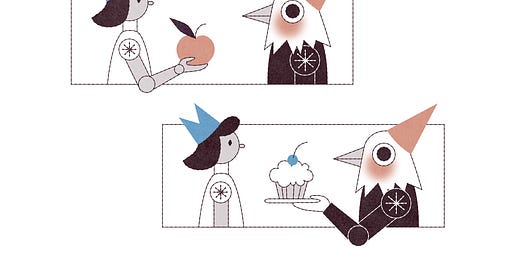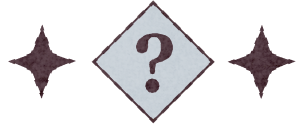Community Skill-share: Let's Make a Creativity Toolkit
The Forever Workshop Community Corner — 3.26.25
Ahoy there, lovely writerpeople.
We’re coming to the end of another brilliant workshopping month and there are some excellent tips ‘n’ tricks to be found in Erin Karbuczky‘s Lessons from Taylor Swift’s Creative Process’ series, so if you haven’t taken a look already, you’ve got so much yet to enjoy!
(FYI you don’t need to have listened to a single Taylor Swift song to benefit from the goldmine of advice and insight Erin brings to her lessons.)
And while we’re on the subject of The Creative Process, we thought it’d be cool to open up the Community Corner this week for a little skill-sharing.
Share your best creative ‘productivity’ hacks!
What I like best about Erin’s workshops is how she reframes the idea of productivity into a building a personalised, practical toolkit for the creative process.
For example:
How do you work best?
What inspires you?
What themes interest you?
How do you organise your work/thoughts?
What motivates you to write?
How do you learn?
What’s your writing ‘ritual’ or routine?
Now, what works for one writer might not work for the next, of course. BUT if we get enough writerly brains together, there’s sure to be a huge range of interesting ideas and approaches that we can ALL benefit from. Perhaps even some new ways of approaching writing you haven’t considered before…
So let’s share our top three creative tips and create a gigantic pick ‘n’ mix menu in the comments — the weirder the better!
To get you started, here are the tricks that are working for me at the moment:
Voicenotes! Talk out your writing problem in a voicenote, vent your frustrations, float ideas, or just reiterate your plan. Something about saying it out loud makes the cogs turn better for me. Then you can listen back and write up the useful bits later.
Change the font! Seems really silly, but something about changing the appearance of a text I’ve been staring at forever helps me view it anew. Same goes with page colour — I like a minty green or sepia for easing eye-strain.
Take a dance break! Thoughts getting muddy? Doom scrolling? Writing thoroughly blocked? Whack on some music and dance like it’s the last day of Woodstock for at least three songs and I promise you’ll at least feel a bit less blehhh.
Alright, now it’s your turn:
What three things help YOUR creative process the most?
Let us know in the comments, and browse the other answers to find your next favourite creative hack!
Sneak peek for next week: a super extra special AMA!
Oh hey, one last thing.
Since we have a spare week between Erin’s workshop and the next (which just so happens to be Take it From Shakespeare with yours truly), we thought we’d do something a little different.
To celebrate the first quarter of The Forever Workshop’s schedule, we’ve invited our wonderful workshop authors back to join in with a special week-long Ask Us Anything, covering all the subjects you’ve workshopped so far (along with a few extra topics, just for kicks).
So look out for the AMA post on Monday 31 March and get your questions ready for Lauren, Nina, Erin, Shelby and me!
(P.S. This one will be for paid subscribers only, so if you haven’t already, upgrade before Monday to join in!)








love "change the font!" such a simple trick but it works!
1. Yes to the font. My favorite is Argentinian. It makes the text look like a medieval monk spent all night copying it, which is just enough to jar my brain. I use the font trick when I'm too close to the text.
2. Marginal notes. Sometimes I can't write another word but I can see how certain sections might go, the fact that the final section doesn't work, options for rearranging, etc. I'll finish my writing session by putting those notes in the margin of my Word doc. This gives me a reminder of what I was thinking and a head start for the next session.
3. My wine cellar. Alas, not THAT kind. It's what I call the deliberate act of putting a draft away for multiple weeks in order to get a fresh perspective on it. My to-do list has a "wine cellar" section, where I note the name of the piece and the week ("week of April 15") that I'll take another look. I figure which week purely by feel. If I were really good at this, I'd put drafts away for three months, but I'm not that patient.